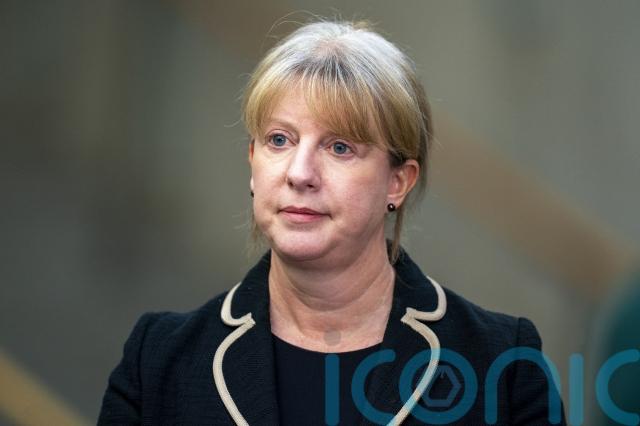
The Scottish Government will consider tax changes “very carefully” ahead of a budget in which “very challenging decisions” will have to be made, the Deputy First Minister said.
Shona Robison told MSPs that the budget she will put forward on December 19 “will be a budget of difficult decisions”, as she told how higher than expected public pay settlements had impacted on the Scottish Government’s finances.
Ms Robison said: “The pay settlements we have seen across the public sector are way beyond what any part of the public sector had budgeted for.
“That is an absolutely critical driver of some of the problems we have.”
The Deputy First Minister, who is also the Finance Secretary, told how Scottish Government changes to income tax had raised more than half a billion pounds for Holyrood’s coffers last year – with the cash about the same as the amount needed to fund wage claims.
Giving evidence to MSPs on the Scottish Parliament’s Finance Committee, Ms Robison said: “The changes we made in last year’s budget generated £520 million from income tax as a consequence of those changes.
“And that has been critical in helping us this year, not least as we have had an almost equivalent figure of over £500 million of additional pay pressures beyond what was budgeted for.”
The Deputy First Minister’s comment’s came as she highlighted the need to “address the scale of the challenges facing our public finances”.

But she also insisted the UK Government must also “provide sufficient support” to the governments in Edinburgh, Cardiff and Belfast.
Ms Robison, together with ministers from Wales and officials from Northern Ireland, met Chief Secretary to the Treasury John Glen.
She told MSPs on Holyrood’s Finance Committee that there had been a “frank conversation” involving the the UK Government minister and representatives from Scotland, Wales and Northern Ireland about “the need for the UK Government to provide sufficient support to the devolved governments to ensure we can adequately manage the pressures arising from these challenges”.
Setting out the challenges to public finances, the Deputy First Minister highlighted “sustained high inflation, the war in Ukraine, the fall out from the UK Government’s mini-budget last year, Brexit and the ongoing impact of the Covid pandemic”.
With public spending in Scotland under pressure, Ms Robison said that using the “limited tax lever” that Holyrood has was something ministers would “consider very carefully”.
While low earners pay reduced rates of income tax in Scotland compared to the rest of the UK, and higher earners pay more in income tax than their counterparts south of the border, Ms Robison said such changes had been made to “try to bring some fairness and progressivity to our system”.
She added: “We will continue to look at how we can address what is a very challenging set of circumstances next year where the budget is going to reduce in real terms, and we will have to look at using all of those levels and making some very challenging decisions.”
Subscribe or register today to discover more from DonegalLive.ie
Buy the e-paper of the Donegal Democrat, Donegal People's Press, Donegal Post and Inish Times here for instant access to Donegal's premier news titles.
Keep up with the latest news from Donegal with our daily newsletter featuring the most important stories of the day delivered to your inbox every evening at 5pm.